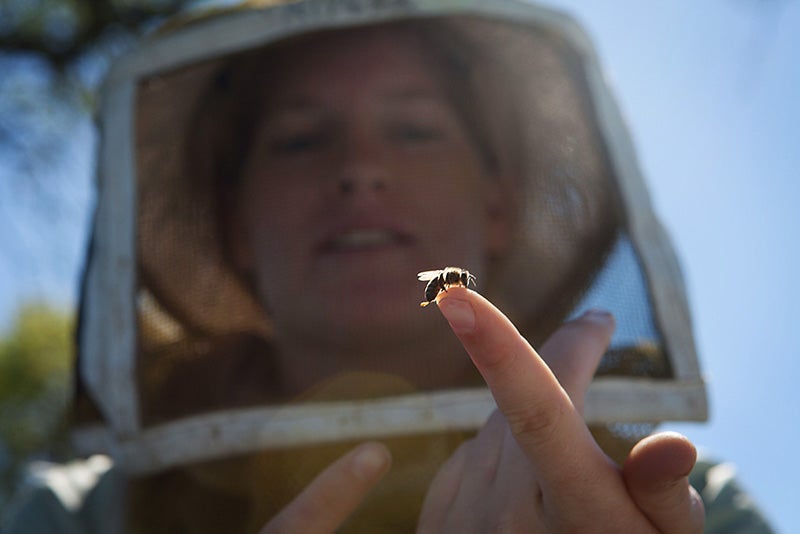Federal Court Overturns EPA Approval of Bee-Killing Pesticide
Victory
—9th Circuit rejects approval of Dow Chemical's sulfoxaflor
Contact
Today, the Ninth Circuit Court of Appeals rejected U.S. EPA’s approval of the neonicotinoid insecticide “sulfoxaflor.” The Court concluded that EPA violated federal law when it approved sulfoxaflor without reliable studies regarding the impact that the insecticide would have on honeybee colonies. The Court vacated EPA’s approval, meaning that sulfoxaflor may not be used in the U.S. unless, and until, EPA obtains the necessary information regarding impacts to honeybees and re-approves the insecticide in accordance with law.
Earthjustice represented a coalition of commercial beekeeping trade groups, as well as individual commercial beekeepers. The coalition included Pollinator Stewardship Council, National Honeybee Advisory Board, American Honey Producers Association, American Beekeeping Federation and beekeepers Jeff Anderson, Rick Smith, and Brett Adee.
Statement from Greg Loarie, our lead counsel on this case: “Our country is facing widespread bee colony collapse, and scientists are pointing to pesticides like sulfoxaflor as the cause. The Court’s decision to overturn approval of this bee-killing pesticide is incredible news for bees, beekeepers and all of us who enjoy the healthy fruits, nuts, and vegetables that rely on bees for pollination.”
Statement from Michele Colopy, Program Director of Pollinator Stewardship Council, Inc.: “The Pollinator Stewardship Council is pleased with the 9th Circuit Court’s Opinion concerning the registration of sulfoxaflor. Our argument, presented by Earthjustice attorney Greg Loarie, addressed our concerns that EPA’s decision process to unconditionally register Sulfoxaflor was based on flawed and limited data, and the 9th Circuit Court agreed with us. We can protect crops from pests and protect honey bees and native pollinators. To do this EPA’s pesticide application and review process must receive substantial scientific evidence as to the benefits of a pesticide, as well as the protection of the environment, especially the protection of pollinators.”
The Court did state Sulfoxaflor is a subclass of neonicotinoids. With the findings in this case, EPA may be encouraged to re-examine other unconditional registrations for possible flawed and limited data.
BACKGROUND
Learn how neonics are turning the sweet lives of bees sour. View Infographic »
One in every three bites of food depends on bees for pollination, and the annual value of pollination services worldwide are estimated at over $125 billion.
In the United States, pollination contributes $20–$30 billion in agricultural production annually. And in California alone, almonds crops—entirely dependent on bees for pollination—are valued at over $3 billion.
A growing body of independent science links a class of pesticides called neonicotinoids (neonics) to bee declines, both alone and in combination with other factors like disease and malnutrition. Twenty-nine independent scientists conducted a global review of 800 independent studies and found overwhelming evidence of pesticides linked to bee declines.
More Resources
- Read the court’s opinion.
- Main resource page for this case.
- Podcast: Why is sulfoxaflor so bad for bees? An interview with Earthjustice Attorney Greg Loarie.
- Feature Story: The Case of the Vanishing Bees
- Photo Feature: The Perfect Crime: What’s Killing All The Bees?
Jason P. Smith / Earthjustice
Bees at work in Portland, Maine. In the widespread bee die-offs, bees often just vanish. One beekeeper calls it the “Perfect Crime”—no bodies, no murder weapon, no bees. What’s happening to the bees? View photos »

Additional Resources
About Earthjustice
Earthjustice is the premier nonprofit environmental law organization. We wield the power of law and the strength of partnership to protect people's health, to preserve magnificent places and wildlife, to advance clean energy, and to combat climate change. We are here because the earth needs a good lawyer.